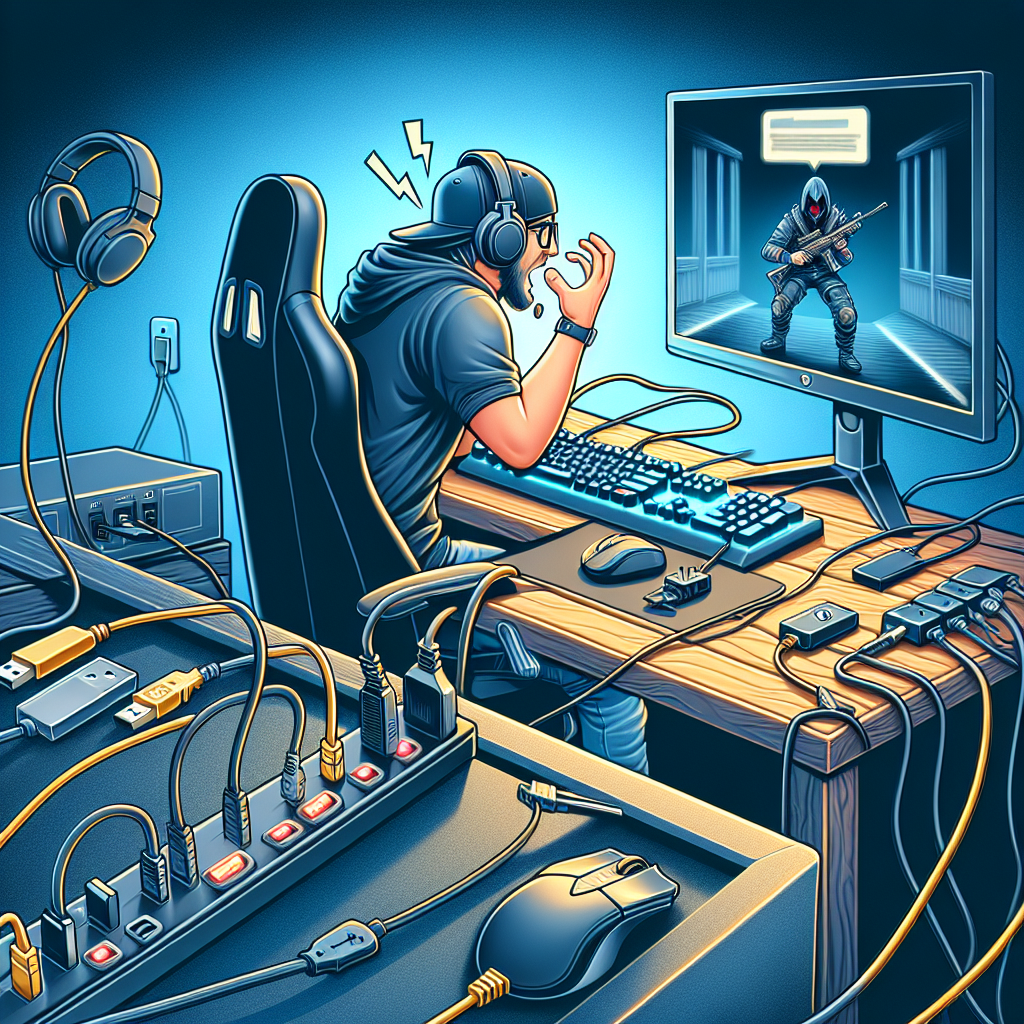Gaming peripherals like mice, keyboards, and gaming controllers enhance our gaming experiences by providing advanced features and responsiveness. However, it can be frustrating to see them disconnect unexpectedly when connected through a USB hub. Understanding the reasons behind these disconnections can help gamers troubleshoot issues effectively and ensure their peripherals function correctly.
| Reason | Description |
|---|---|
| Power Limitations | USB hubs have power limits, affecting the performance of high-draw peripherals. |
| Data Transfer Rates | Some hubs may not support high-speed data transfer required by gaming devices. |
| Compatibility Issues | Not all USB hubs are compatible with every gaming peripheral. |
| Cable Quality | Low-quality USB cables can lead to disconnections. |
| Port Overload | Exceeding the number of devices connected can cause disconnections. |
| Driver Problems | Outdated or missing drivers can create communication issues. |
Understanding USB Hubs
Before diving into the reasons why your gaming peripherals might disconnect when connected through a USB hub, it’s essential to understand how USB hubs work. A USB hub expands the number of available USB ports by providing additional connections, allowing multiple devices to be connected simultaneously. However, there are limitations and considerations to keep in mind.
Power Distribution
USB hubs can be categorized based on power delivery:
- Passive Hubs: These do not have a dedicated power source and depend on the USB port of the host device. They may not provide enough power for devices that draw significant energy, leading to disconnections.
- Powered Hubs: These come with an external power supply and can provide adequate power to multiple devices. They are recommended for gaming peripherals that require higher power.
Types of USB Hubs
USB hubs come in various types, including:
- USB 2.0 Hubs: Generally slower and suitable for low-bandwidth devices.
- USB 3.0/3.1 Hubs: Higher data transfer speeds, suitable for gaming peripherals.
- USB-C Hubs: Versatile connections supporting various devices.
Common Reasons for Disconnects
1. Power Limitations
As mentioned earlier, one primary reason your gaming peripheral may disconnect is power limitations. If you’re using a passive USB hub, it might not supply sufficient power to high-draw devices like gaming mice or keyboards with RGB lighting. When too many devices are connected, the hub may struggle to provide enough power, resulting in disconnections.
2. Data Transfer Rates
Gaming peripherals often require high data transfer rates to operate smoothly, especially in competitive gaming environments. If your USB hub does not support the necessary speed (usually USB 3.0 or higher), you may experience input lag or disconnections while using your devices.
3. Compatibility Issues
Not all USB hubs are compatible with every gaming peripheral. Some devices may rely on proprietary drivers or firmware, which might not work seamlessly through certain hubs. Always check the specifications and compatibility of your USB hub with your gaming peripherals.
4. Cable Quality
The quality of the USB cables used can also play a significant role in maintaining a stable connection. Low-quality or damaged cables can introduce resistance and lead to data loss or power issues. It’s advisable to use high-quality cables specifically designed for gaming peripherals.
5. Port Overload
Connecting too many devices to a single USB hub can overwhelm it. Most hubs can handle a limited number of devices; exceeding this number can lead to disconnections. It’s essential to monitor how many devices are connected and if possible, use a powered hub to accommodate additional peripherals.
6. Driver Problems
Sometimes the issue could lie with driver compatibility. Outdated or missing drivers for your USB hub or gaming peripherals can cause communication breakdowns. Regularly updating drivers can help maintain robust communication between the devices and reduce the likelihood of disconnections.
Troubleshooting Tips
1. Use a Powered USB Hub
If you frequently notice disconnections, consider investing in a powered USB hub. It will provide dedicated power to your peripherals, improving their performance and preventing disconnections.
2. Check USB Port Compatibility
Ensure that your USB hub is compatible with your gaming peripherals. If necessary, refer to the manufacturer’s guidelines for compatibility information.
3. Monitor Device Connectivity
Be mindful of how many devices you connect to the hub. Limit the number of peripherals connected at once and consider using multiple hubs if necessary.
4. Inspect Cables and Connectors
Regularly check your cables and connectors for wear and tear. Replace any damaged cables with high-quality alternatives to ensure a stable connection.
5. Keep Drivers Updated
Maintain the latest drivers for your gaming peripherals and USB hubs. Regularly check the manufacturer’s website for updates and install them promptly.
Conclusion
Experiencing disconnections with gaming peripherals can disrupt your gaming sessions and affect performance. Understanding the common reasons, such as power limitations, data transfer rates, compatibility issues, cable quality, port overload, and driver problems, allows you to take proactive measures to troubleshoot and resolve these issues. By implementing the troubleshooting tips mentioned above, you can improve your gaming experience and enjoy seamless connectivity with your devices.

